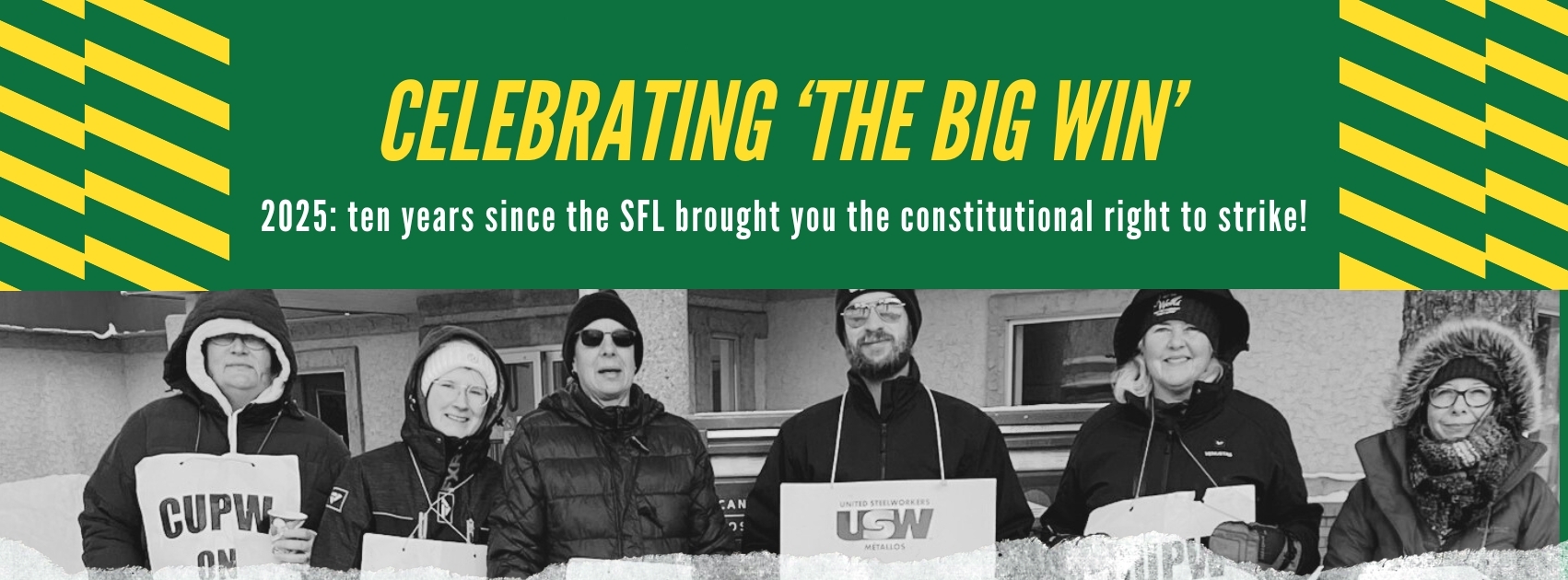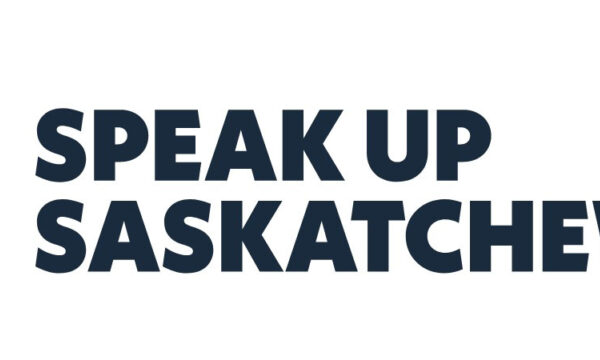Celebrating 'The Big Win'

The Saskatchewan Federation of Labour (SFL) played a pivotal role in a landmark legal battle that culminated in the recognition of the constitutional right to strike for Canadian workers on January 30, 2015.
Over several weeks, the the SFL will be remembering, celebrating, and reflecting on 'The Big Win' with stories & reflections - even cracking open the archives for some headlines, photos, and insights from the time!
Background
In 2007, the Government of Saskatchewan introduced two pieces of legislation under Premier Brad Wall’s recently-elected and anti-worker Saskatchewan Party government:
- Bill No. 5, The Public Service Essential Services Act (PSESA): This law restricted the ability of public-sector workers deemed “essential” to strike, without providing an alternative mechanism to resolve disputes, such as binding arbitration.
- Bill No 6, The Trade Union Amendment Act (TUAA): It made union certification more difficult and de-certification easier.
These laws were met with widespread opposition from unions and workers, as these changes violated workers' fundamental rights. Both bills became law in 2008.
Over the next 7 years, the SFL and the labour movement mounted an intense, difficult, and controversial legal battle that would eventually end up at the Supreme Court of Canada.
See detailed series of events at Timeline: 2007-2015
The Fight for the Right
Legal Challenge Begins
The SFL, representing over 100,000 workers in Saskatchewan, spearheaded a legal challenge to the PSESA (Bill 5). They argued that the legislation violated workers' rights under Section 2(d) of the Canadian Charter of Rights and Freedoms, which guarantees freedom of association. The SFL contended that the right to strike was a fundamental aspect of collective bargaining, which was protected under the Charter.
In 2012, the Court of Queen’s Bench of Saskatchewan ruled in favor of the SFL, declaring that the PSESA was unconstitutional. However, this decision was overturned in 2013 by the Saskatchewan Court of Appeal, which held that the Charter did not protect the right to strike. The SFL then appealed to the Supreme Court of Canada.
The Supreme Court Decision (2015)
On January 30, 2015, the Supreme Court of Canada delivered a historic 5-2 decision in Saskatchewan Federation of Labour v. Saskatchewan. The Court ruled that the right to strike is constitutionally protected under Section 2(d) of the Charter.
Key points from the ruling:
- The right to strike is essential to meaningful collective bargaining, as it provides workers with leverage to negotiate with employers.
- By denying public-sector workers the right to strike without offering alternatives like binding arbitration, the PSESA violated their constitutional rights.
- The decision marked a significant expansion of workers’ rights in Canada, affirming that freedom of association includes the right to collective action.
The Court gave the Saskatchewan government one year to amend or replace the PSESA to comply with the Charter.
Get the retrospective from leaders and lawyers at The Big Win: Looking Back
Impact & Legacy
This victory was a watershed moment for the Canadian labour movement, including:
- Strengthened Workers' Rights: The decision set a precedent, affirming that the right to strike is a fundamental freedom.
- Inspired Other Legal Challenges: It encouraged unions across Canada to challenge restrictive labour laws.
- Unified Labour Movements: The fight demonstrated the power of collective action and legal advocacy in defending workers' rights.
For the SFL, the victory solidified its reputation as a steadfast advocate for workers, showing that even against one of the most formidable political opponents to labour in Canadian history, rights could be upheld through persistence and legal action.
Dive into the Canadian context ten years on at The Big Win: Beyond Saskatchewan


